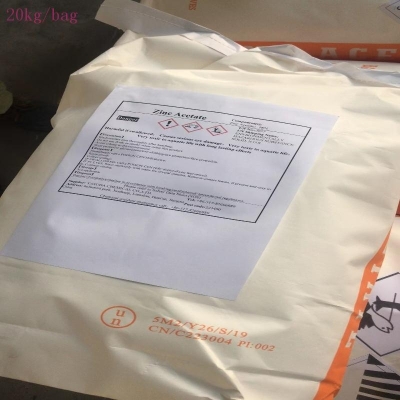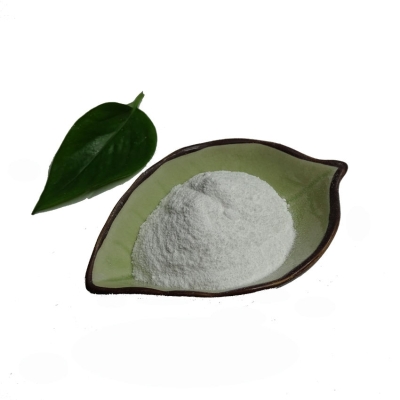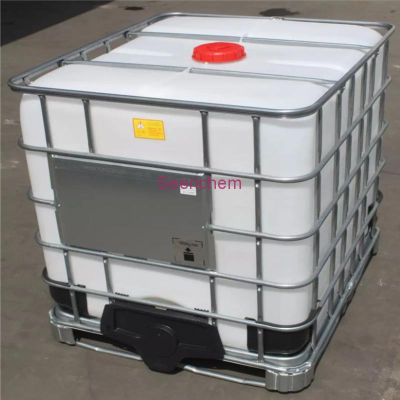-
Categories
-
Pharmaceutical Intermediates
-
Active Pharmaceutical Ingredients
-
Food Additives
- Industrial Coatings
- Agrochemicals
- Dyes and Pigments
- Surfactant
- Flavors and Fragrances
- Chemical Reagents
- Catalyst and Auxiliary
- Natural Products
- Inorganic Chemistry
-
Organic Chemistry
-
Biochemical Engineering
- Analytical Chemistry
-
Cosmetic Ingredient
- Water Treatment Chemical
-
Pharmaceutical Intermediates
Promotion
ECHEMI Mall
Wholesale
Weekly Price
Exhibition
News
-
Trade Service
On March 27, the 7th National Pesticide Industry Environmental Technology Exchange Conference and VOCs Deepening Governance and Standardization Technical Training Course jointly sponsored by the China Pesticide Industry Association and the Environmental Standards Research Institute of the Ministry of Ecology and Environment came to an end in Yixing City, Jiangsu Province.
The meeting discussed issues such as the publicity and implementation of environmental protection standards in the pesticide industry, technological transformation and upgrading, and put forward suggestions on the green and sustainable development of the industry.
Sun Shubao, president of the Pesticide Association, pointed out in his speech that the rapid development of China's pesticide industry has made important contributions to ensuring food security in domestic and international markets, but there are still many problems behind the rapid development, such as wastewater mother liquor, waste salt, and solid waste residues.
And the treatment of volatile organic pollutants (VOCs), etc.
; At the same time, the updating of laws, regulations and standards has accelerated the elimination of environmental protection facilities, and environmental protection operating costs have continued to increase.
To this end, he put forward two suggestions for the development of the pesticide industry from the perspective of environmental protection: One is to promote intensive production in the production process.
Improve the level of intelligence, cleanliness, and continuity of pesticide production, guide enterprises to develop a circular economy, encourage cleaner production, improve the level of harmless treatment and resource recycling of pesticide by-product industrial salt, and realize it in key dangerous positions "Automation reduces people" and "machines replace people" to improve the level of intelligence.
The second is to introduce advanced treatment technologies in the promotion link.
Many advanced environmental protection technologies have been developed and applied in the pesticide industry in my country, such as catalytic wet oxidation technology, extraction targeted separation technology to remove characteristic pollutants, RTO incineration technology, waste incineration technology, efficient fluidized bed Fenton oxidation technology, and macroporous resin adsorption technology , Multi-effect evaporation technology, etc.
, enterprises should pay attention to and introduce these governance technologies to promote the high-quality and high-level development of the industry.
Wang Haiyan, deputy director of the Environmental Standards Institute of the Ministry of Ecology and Environment, believes that understanding and implementing the relevant ecological and environmental standards is very important for the green development of pesticide companies.
She said that in recent years, the pesticide-related ecological environment standard system has been continuously improved, with a total of 35 current related standards, supporting the structural optimization and pollution reduction of the pesticide industry.
"During the '14th Five-Year Plan' period, ecological environmental standards will develop in the direction of pollution reduction and carbon reduction, quality improvement, risk prevention, ecological protection, and source prevention.
The vitality of standards lies in their implementation, and it is necessary to carry out standard training and seminars in enterprises.
" Wang Haiyan said.
Jiang Weiqun, chairman of Jiangsu Lanbisheng Chemical Environmental Protection Co.
, Ltd.
, said in his speech that after docking with hundreds of pesticide companies, they found that companies generally have some pain points in environmental protection: First, the environmental protection equipment has been repeatedly modified, but the actual effect is not satisfactory; The second is the tightening of environmental protection inspections, and companies are facing unprecedented challenges in the two "big mountains" of increased competition and high pressure on environmental protection; third, the safety problems caused by environmental protection installations are endless, and safety hazards and risks are greater.
In this regard, he suggested that pesticide companies can cooperate with environmental protection companies to build an environmental protection community and promote the green and sustainable development of the industry.
The meeting discussed issues such as the publicity and implementation of environmental protection standards in the pesticide industry, technological transformation and upgrading, and put forward suggestions on the green and sustainable development of the industry.
Sun Shubao, president of the Pesticide Association, pointed out in his speech that the rapid development of China's pesticide industry has made important contributions to ensuring food security in domestic and international markets, but there are still many problems behind the rapid development, such as wastewater mother liquor, waste salt, and solid waste residues.
And the treatment of volatile organic pollutants (VOCs), etc.
; At the same time, the updating of laws, regulations and standards has accelerated the elimination of environmental protection facilities, and environmental protection operating costs have continued to increase.
To this end, he put forward two suggestions for the development of the pesticide industry from the perspective of environmental protection: One is to promote intensive production in the production process.
Improve the level of intelligence, cleanliness, and continuity of pesticide production, guide enterprises to develop a circular economy, encourage cleaner production, improve the level of harmless treatment and resource recycling of pesticide by-product industrial salt, and realize it in key dangerous positions "Automation reduces people" and "machines replace people" to improve the level of intelligence.
The second is to introduce advanced treatment technologies in the promotion link.
Many advanced environmental protection technologies have been developed and applied in the pesticide industry in my country, such as catalytic wet oxidation technology, extraction targeted separation technology to remove characteristic pollutants, RTO incineration technology, waste incineration technology, efficient fluidized bed Fenton oxidation technology, and macroporous resin adsorption technology , Multi-effect evaporation technology, etc.
, enterprises should pay attention to and introduce these governance technologies to promote the high-quality and high-level development of the industry.
Wang Haiyan, deputy director of the Environmental Standards Institute of the Ministry of Ecology and Environment, believes that understanding and implementing the relevant ecological and environmental standards is very important for the green development of pesticide companies.
She said that in recent years, the pesticide-related ecological environment standard system has been continuously improved, with a total of 35 current related standards, supporting the structural optimization and pollution reduction of the pesticide industry.
"During the '14th Five-Year Plan' period, ecological environmental standards will develop in the direction of pollution reduction and carbon reduction, quality improvement, risk prevention, ecological protection, and source prevention.
The vitality of standards lies in their implementation, and it is necessary to carry out standard training and seminars in enterprises.
" Wang Haiyan said.
Jiang Weiqun, chairman of Jiangsu Lanbisheng Chemical Environmental Protection Co.
, Ltd.
, said in his speech that after docking with hundreds of pesticide companies, they found that companies generally have some pain points in environmental protection: First, the environmental protection equipment has been repeatedly modified, but the actual effect is not satisfactory; The second is the tightening of environmental protection inspections, and companies are facing unprecedented challenges in the two "big mountains" of increased competition and high pressure on environmental protection; third, the safety problems caused by environmental protection installations are endless, and safety hazards and risks are greater.
In this regard, he suggested that pesticide companies can cooperate with environmental protection companies to build an environmental protection community and promote the green and sustainable development of the industry.







